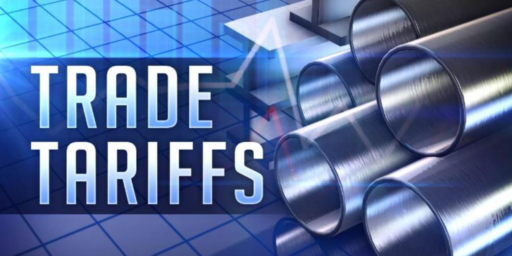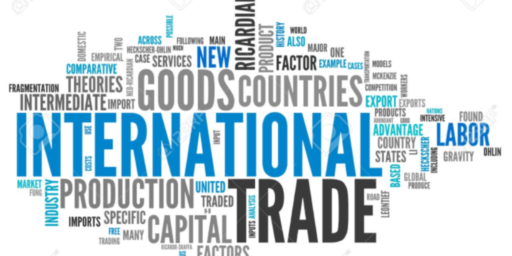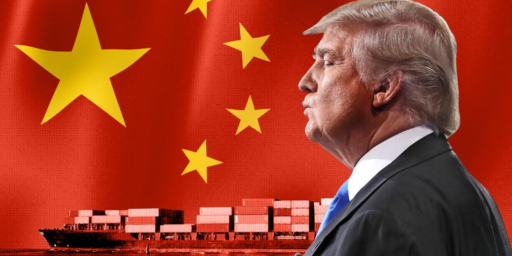Amazingly Bad Reporting
Like Michael Cannon, this article in the Washington Post strikes me as a particularly bad case of reporting on economic policy. The article is on tariff suspensions and is caste in a typical fashion of domestic businesses being beaten by foreign competitors, Wal-Mart bashing and how it is bad for tax payers.
Lets take the last one first. The article repeatedly referes to how these suspensions cost tax payers money. How does this work? The reasoning goes like this: because tariffs are reduced or eliminated there is less money flowing into the U.S. Treasurey and as a result tax payers are on the hook for that decreased revenue. What the author of the article, Joe Stephens, apparently didn’t realize is that these tariffis also cost tax payers money as well. Tariffs make imported goods more expensive, which is why domestic businesses like them. Take for example the dog leash/collar tariff. That basically adds a 2.4% tax on foreign produced dog collars and leashes. Given the tens of millions of dogs that are owned in this country that means we are probably talking about millions of dollars. So, sure, reducing or eliminating the tariff does mean that there is less tax revenue, which if we are operating under a balanced budget assumption means higher taxes on tax payers. But at the same time it also means lower prices faced by consumers. And the population of tax payers and consumers are pretty much one and the same. By highlighting just the loss in revenues to the treasurery Joe Stephens is giving, in this case literally half the story.
As for the tariff suspensions being bad for domestic business, no kidding. But the history of protectionist policies (and tariffs are protectionist) is pretty grim from a populist stand point, IMO. Typically tariffs increase the prices and hence profits of domestic firms, but do little to raise domestic employment. Typically, a firm that faces less competition will produce less of the good. Consider the extreme case of a monopolist. The efficient level of production is to produce so that the marginal cost (cost of the last unit produced) is equal to the price. Monopolists select the profit maximizing level of production which is lower and equates marginal revenue (revenue on the last unit sold) to marginal cost. Hence less competition generally means less employment all other things being equal. To many this may sound counter-intuitive in that without tariffs there is more competition and some domestic firms in a given industry will shut down since they can’t compete. However, with free trade each country will shift factors of production (including labor) to those industries where it has a comparative advantage.
Basically this news story covers only half of the story and actually implicitly argues for higher prices for millions of consumers.




But surely the country is better off with the 2.4% in the hands of the government rather than in the hands of the dog owners.
To take this to its logical conclusion, anything less than the government taking 100% of your wages is bad for taxpayers because anything less than 100% would reduce the flow of money into the treasury. Of course 100% is clearly on one end of Laffer’s curve, but I suspect that anyone who would be persuaded that the higher the taxes the better it is for taxpayers is not going to be persuaded by Laffer’s curve.
Since the 2.4% is supposed to be bad for taxpayers, why don’t the dog leash buyers who are also tax payers send an additional 2.4% in to the government. You can send additional funds if you want, nothing is stopping you. If that additional 2.4% is good for taxpayers and you are a taxpayer, why not make it twice as good and send in twice as much?
It kind of reminds me of Kerry and Kennedy who advocate increasing taxes on the rich (e.g. Kerry and Kennedy), but who don’t check the box to send in the optional higher taxes in Massachusetts. It would seem their zeal for taxing the rich is not backed by any sort of personal conviction.
I read the article as being primarily about the lobbying culture, with special breaks added to bills as political favoritism.